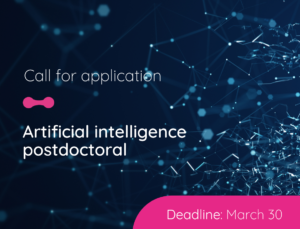
The work carried out by Cenia doctoral student Pablo Sanabria, together with Felipe Tapia, and researchers Andrés Neyem, who participates as an associate researcher at Cenia, and Rodrigo Toro Icarte, junior researcher at the center, both from the research line “Deep Learning for Vision and Language” (RL1), was published by the scientific publishing house Multidisciplinary Digital Publishing Institute (MDPI), one of the main open-access publishers for academic outreach. The paper was published in the Special Issue “Distributed Computing Systems and Applications,” a journal that focuses on the publication of new discoveries and new trends in computing and software engineering towards distributed systems.
The article titled “Solving Task Scheduling Problems in Dew Computing via Deep Reinforcement Learning”, presents and proposes the use of an agent that uses artificial intelligence (AI) techniques to learn to distribute tasks among several devices that are connected through a local network. Andres Neyem pointed out that “the results show that the agent is able to learn to distribute tasks better than the state of the art.”
Andrés points out that, due to technological advances, the hardware potential of mobile devices and loTs is much greater than it was four years ago, and with the outlook that this potential will increase over time, it is feasible to think that these devices will be able to perform increasingly complex tasks. These types of functions include, for example, pattern or object recognition in videos and images, complex mathematical calculations, simulations, etc. But, despite this potential, such technological instruments still have a couple of important limitations such as battery life, stability and quality of the network connection due to the wireless nature of these devices.
To use these devices in distributed systems, as in traditional systems, it is important to have scheduling algorithms that know how and when to assign a task (or part of it) to a device within the network. For these types of devices, the scheduling algorithm must take into account the unique characteristics of mobile and/or IoT devices (battery, connectivity and their computing power). Currently, there are scheduling algorithms that suggest how to solve this problem, and this paper proposes to use AI approaches and techniques, such as reinforcement learning, so that scheduling algorithms can automatically distribute tasks in the most optimal way possible.
In addition, the researcher highlighted the importance of publishing in a journal of such impact as Wos. “For us to be published in this journal is very encouraging, and it also shows us that the discoveries we are making are relevant to science. The fact that the journal is Open Access motivates us a lot, because it allows our discoveries to be read and analyzed by the scientific community in a more accessible way,” he concludes.







